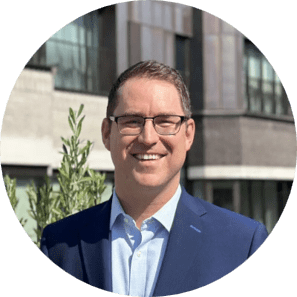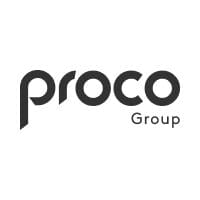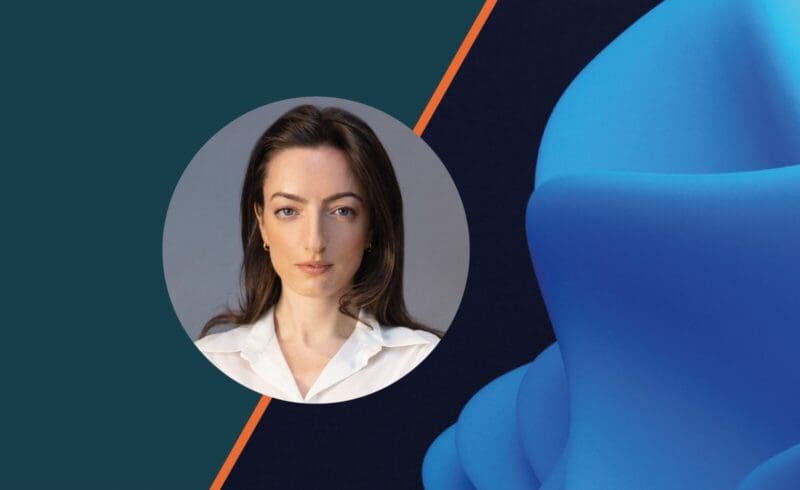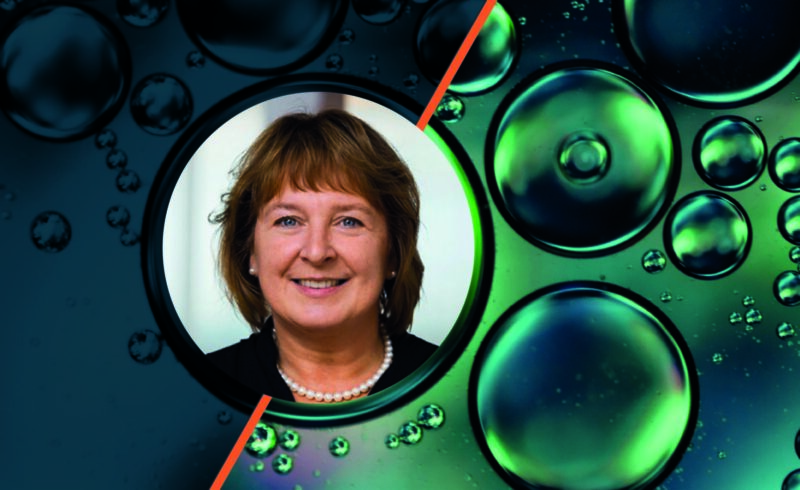As part of International Women's Day, we interviewed women across our three core markets to understand how organisations can attract and retain more women into senior and leadership roles.
Whilst International Women’s Day (IWD) is commemorated once a year, we believe the conversation around achieving complete gender parity should be continuous.
As part of our focus on IWD this year, we interviewed women leaders across our three core markets to learn about their diverse career journeys, and to ask them how organisations can attract and retain more talented women into senior, executive and board-level roles.
In this blog series, we are putting the spotlight on each of the women we spoke to who shared their insights and expertise, starting with Penelope Hope.
Penelope is an entrepreneur and the former Co-founder of Rebel Energy. She spoke to Tom Mee, an Associate Partner in Commodities for EMEA at Proco Group, about her experience.
Please talk us through Rebel Energy’s approach to hiring
At Rebel Energy I had the privilege of hiring for the whole business and thoroughly enjoyed it. I sourced people based on the instincts I had for their tenacity, grit and go-getting attitude. I was unafraid of hiring younger people with less experience because I knew that, when I was younger, I was more than capable.
I was able to pick people who might have fallen through the net of the traditional institutions, but who showed promise and were hardworking and mission-led in their thinking and purpose. I’m a big believer in investing time to train staff, which pays back down the line when they’re able to contribute into the business at a high level of competency.
When we started scaling up, we introduced a Discovery Day, which provided candidates with the opportunity to have multiple interviews of different styles across the hierarchy. It helped alleviate the friction that can sometimes occur when only meeting people 1-1. We would also invite existing team members to take the candidates out for lunch and found that both the team and the candidate were enthused by this.
I used the recruitment process as a tool to engender cultural attitudes at the earliest stage, as well as to get a team-wide view of who was right to be brought into the business.
This worked especially well for diverse candidates, where I had the sense that their confidence was perhaps lower. I could see they needed extra encouragement, and the Discovery Day provided the opportunity to build the necessary sense of security and trust.
What have you seen organisations do well when it comes to retaining women?
I believe the idea of ‘retention’ is problematic. If an organisation asks, “How can we retain people?”, the assumption is that their people already want to leave, and the organisation must try to hold on to them. So it’s semantically difficult from the get-go.
The real question is “How can we build a platform for people so that they can thrive, and want to extend, challenge, and grow themselves professionally and personally within our environment, taking our business forward as a result?”
This question is not about retention, it’s about setting people up to succeed.
Our framework for doing this was first to build trust within the team, which requires a set of behaviours that must come from the top. Leaders need to be present and accessible, and to be working as diligently and purposefully as they would expect from others.
Secondly, we knew the [Covid] conditions were challenging, and that burnout rates were high, so we put together a Wellbeing Initiative whereby our team could take one day off every month, outside of their holiday allowance, to focus on personal things. Start-up cultures can be particularly hectic, so we wanted to help pace everybody.
Most importantly, we had a clear social purpose that everyone, including external stakeholders, understood. This meant we all knew what we were getting up for in the morning, and led to a culture of remarkable productivity, creativity, and joy.
By building trust through leadership and putting the focus on sustaining people from a wellbeing perspective, we created a completely different, holistic view of caring for people, hopefully setting them up for the best possible careers.
How did you adapt to attract women to the workplace?
Hiring women is difficult and requires a different approach—something I didn’t realise until I was in the position of having to do it myself.
Generally speaking, I’ve noticed that we women work through relationships. Before even posting a job opportunity, it helps to have a relationship established first. I believe we need greater assurances in order to feel safe, and I want to know that we can trust the leaders of a company before anything else.
We might also need extra confidence to make the leap, and I find this particularly affects women who are classified as diverse, be it in terms of race, cultural heritage, socioeconomic background, or age. I found these women sometimes needed multiple conversations over a number of months to believe they were genuinely sought-after, so we must be prepared to invest our time before approaching them directly for a role.
What advice would you give to other women who aspire to become leaders?
"Build your brand and your relationships. It has helped me to be visible, to have a brand of integrity, and to make my track record known. I have also taken calculated risks at so many junctures throughout my career and would encourage others to do the same."
How would you advise people to build relationships with women that they might want to recruit?
I meet other women at networking evenings, lunches, and roundtables. I often speak at events, and, where there are other women in the audience, I make a point of meeting them. Sometimes I reach out to women directly on LinkedIn if I have been referred to them, or sometimes a recruiter will suggest someone, and I will ask them for an introduction.
If I were to look at the corporate recruitment process for the industry as a whole, I’d be looking at Culture Days, whereby a woman could sign up to spend a day at a given firm and explore what it’s like to be around existing employees and within the building—before getting into roles, suitability, applications, or interviews. Being physically within a space can reveal a lot, much more than a digital marketing campaign ever could.
In all honesty, I think it can take months or even years to recruit a woman effectively, especially within the commodity markets, which are heavily male environments, which means that time is the single biggest issue. Many firms aren’t interested in investing in it, which I find disappointing because the time that goes into hiring the right people translates into success for everyone.
How important are the brand value propositions, mission and vision statements for organisations?
They are fundamental, and the key with the mission statement is to let the staff create it themselves based on the vision the leaders have provided. Those written by consulting firms will most likely lack character and memorability – how could they be expected to accurately express the company’s heart if they are not actively a part of it?
The mission also serves as the most powerful candidate filter, which begs the question of which employee one would rather hire; the person with the highest level of skill or the person with the right values and a willingness to learn? Ideally, it’s a combination of the two.
A homogenous, weak mission statement will attract people with a weak level of commitment, while an authentic, succinct, game-changing statement will attract people who are willing to give it everything they’ve got and to build something of lasting value. I know which kind of teammates I’d rather work alongside.
–
We’d like to extend a big thank you to Penelope for sharing her expertise and insights with us.
Read Proco Group’s 2024 report for International Women’s Day
Click the button below to read our full International Women’s Day report, which highlights the current state of play across our three core markets and shares how to attract and retain talented women into senior, executive and board-level roles.

Tom Mee
Associate Partner | Commodities | EMEA
Tom heads up our Technology and Digital executive search practice with a global remit, with experience in the Americas, EMEA, and APAC regions.
He has 10+ years’ experience partnering with a wide range of clients from start-ups to FTSE 100 companies across a variety of sectors including commodities. Tom has curated an enviable network through this time, which enables him to consistently deliver on mandates and build reliable partnerships with some of the most reputable firms.
T: +44 20 3962 4640 E: tom.mee@weareprocogroup.com




